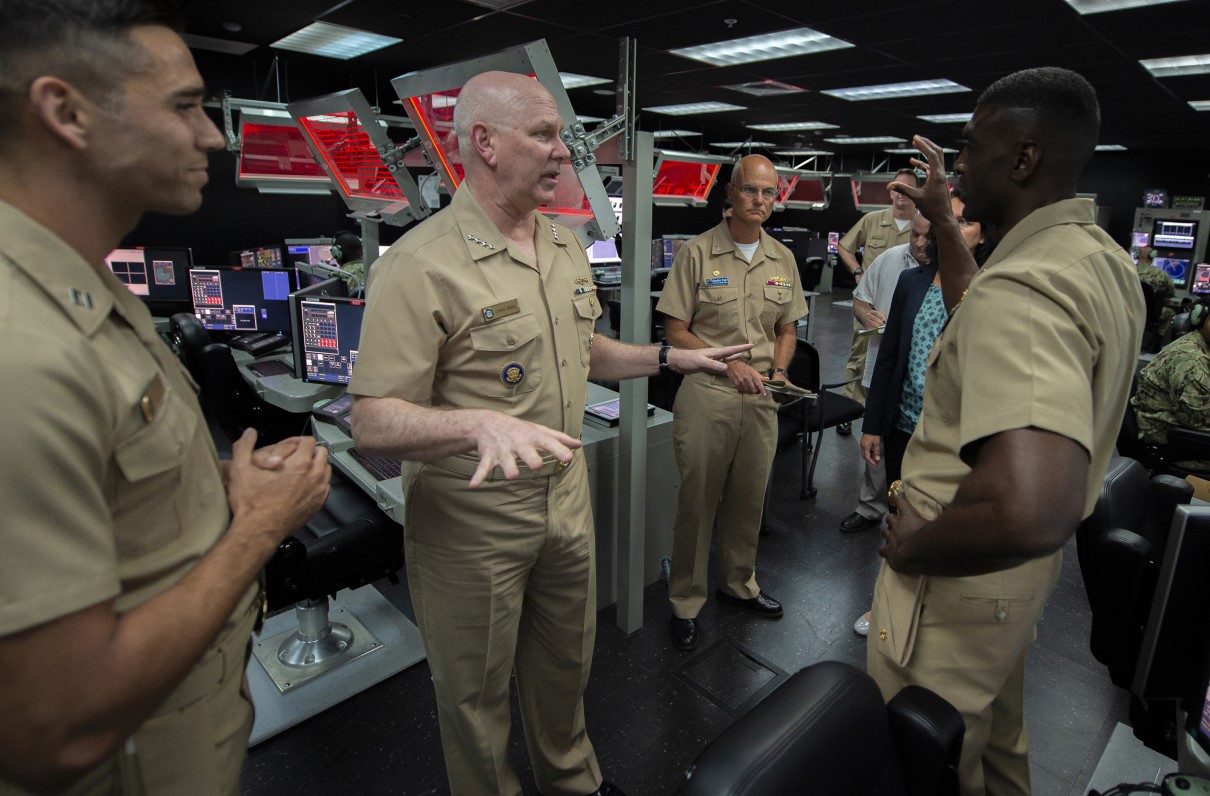Editor’s note: This article by Rebecca Kheel originally appeared on Military.com, a leading source of news for the military and veteran community.
After a monthlong gap, the military is set to get its new No. 2 officer.
Adm. Chris Grady was confirmed to be the vice chairman of the Joint Chiefs of Staff in a Senate voice vote Dec. 16.
His confirmation comes about a month after the previous vice chairman, Gen. John Hyten, retired.
President Joe Biden nominated Grady just weeks before Hyten's retirement, a delay that frustrated lawmakers and made a short vacancy inevitable, even with the Senate moving as quickly as it could to confirm the nomination.
Grady, who previously led Fleet Forces Command, will assume the role of the military's second highest-ranking officer at a time when the United States is warily eyeing a Russian military buildup along the Ukrainian border, with fears Moscow could invade Ukraine early next year.
At his Senate Armed Services Committee confirmation hearing earlier this month, Grady called Russia's threatening posture toward Ukraine "a very dangerous and destabilizing situation that we're working our way through."
"It's important for us to ensure that we work with our NATO partners and continue to recognize the challenges that are faced by Russian activity in that area of the world, and then remain rock solid in our commitment to Ukrainian sovereignty, to Ukrainian self-determination and their larger goals of ultimately perhaps moving forward with alliances and whatnot," he said.
His appointment comes as the military also reorients itself for competition with China after decades of counterterrorism and counterinsurgency in the Middle East.
[RELATED: More Recommended Reads From MOAA]
Grady largely breezed through his confirmation hearing earlier this month; his nomination was advanced by the committee to the Senate floor the week of Dec. 13.
During the hearing, Grady also expressed support for updating the U.S. nuclear arsenal to deter Russia and China and, after some prodding by Republican senators arguing the Biden administration's defense budget request was inadequate, expressed concern about flat or declining defense budgets.
"I think that stable and predictable and adequate funding is important, and that it needs to keep pace with the threat and inflation," Grady said.
He had held his post at Fleet Forces Command since May 2018. Prior to that, he commanded the U.S. 6th Fleet and also spent time commanding the Carl Vinson Carrier Strike Group.
MOAA Looks Out For You
MOAA is committed to protecting the rights of servicemembers and their families. Lend your voice and support these efforts today. Because the larger our voice is, the greater our impact will be.
